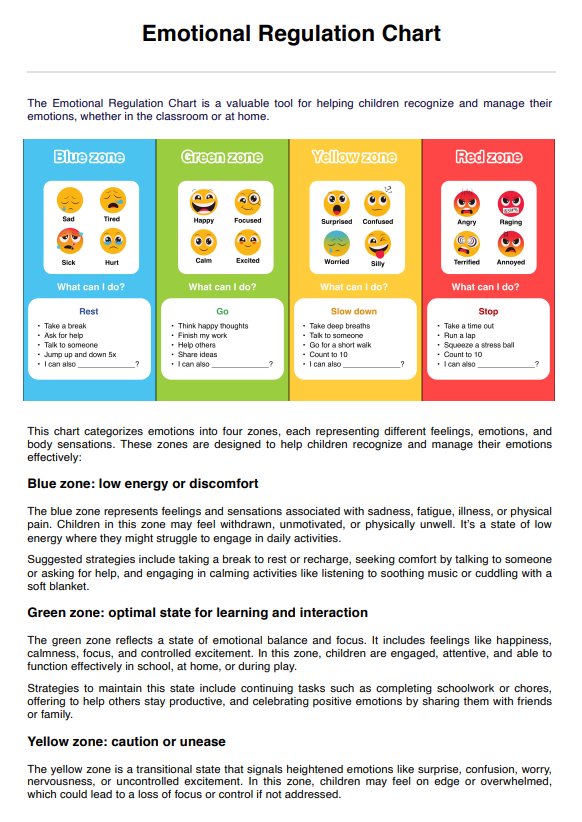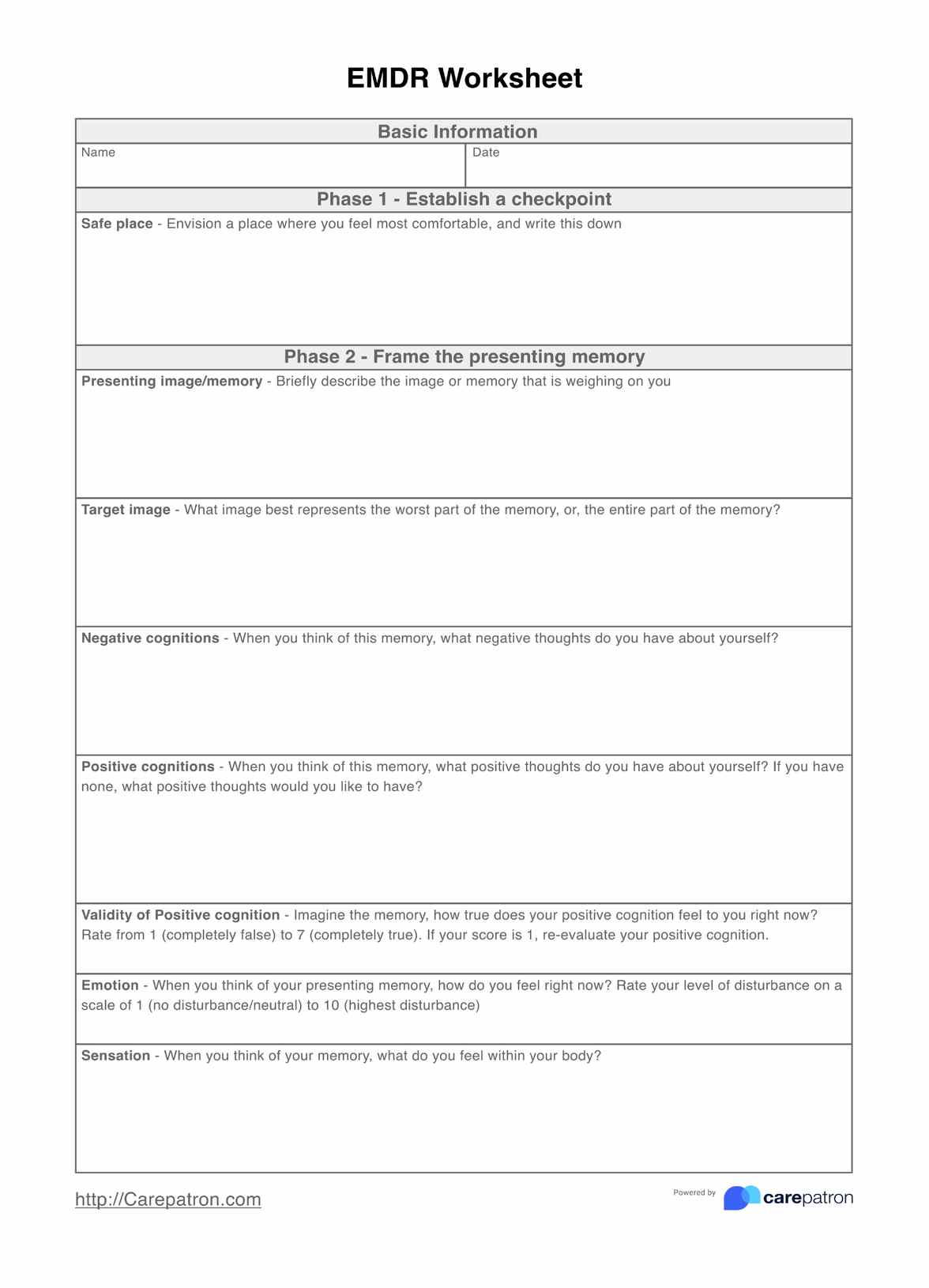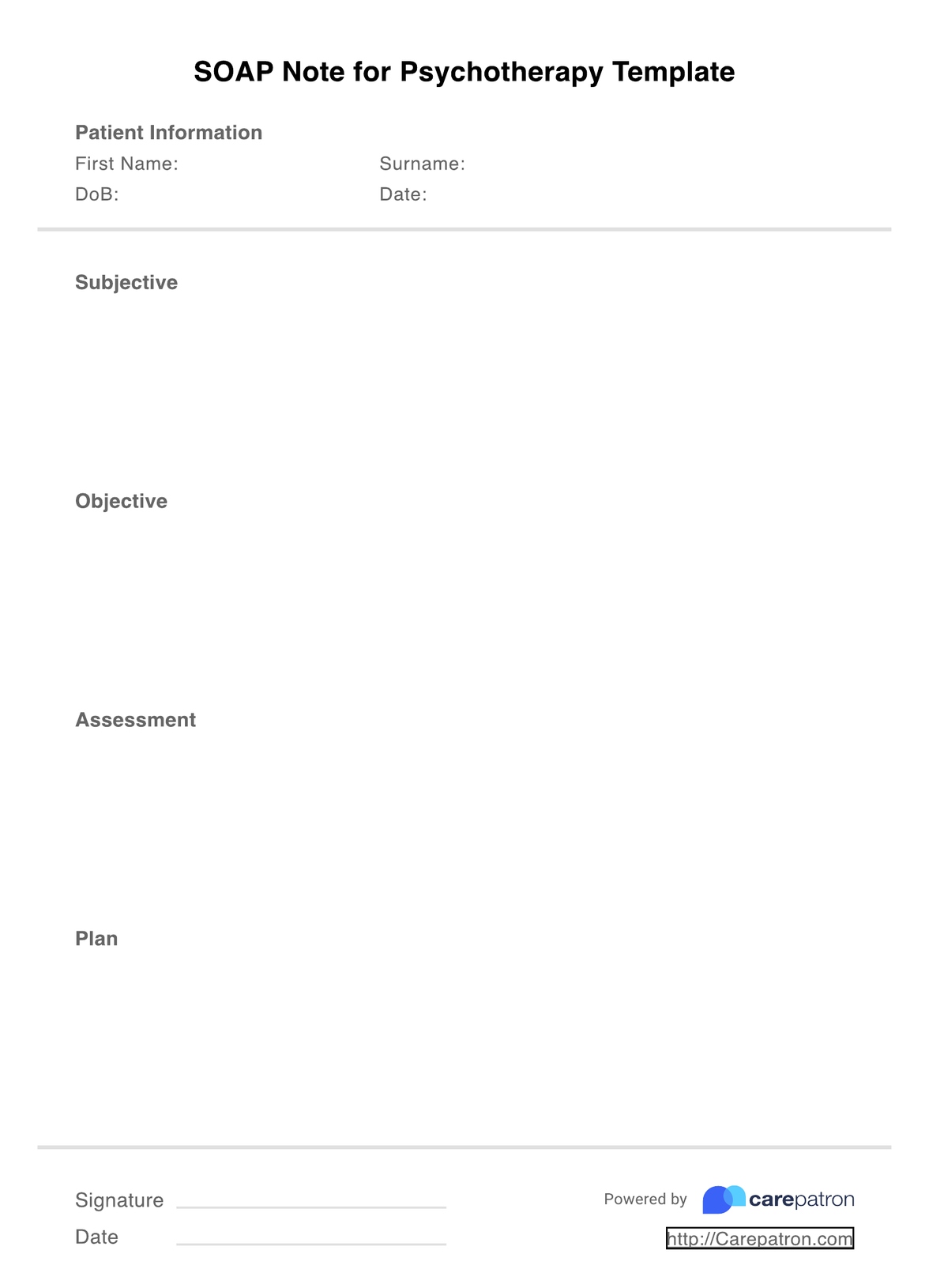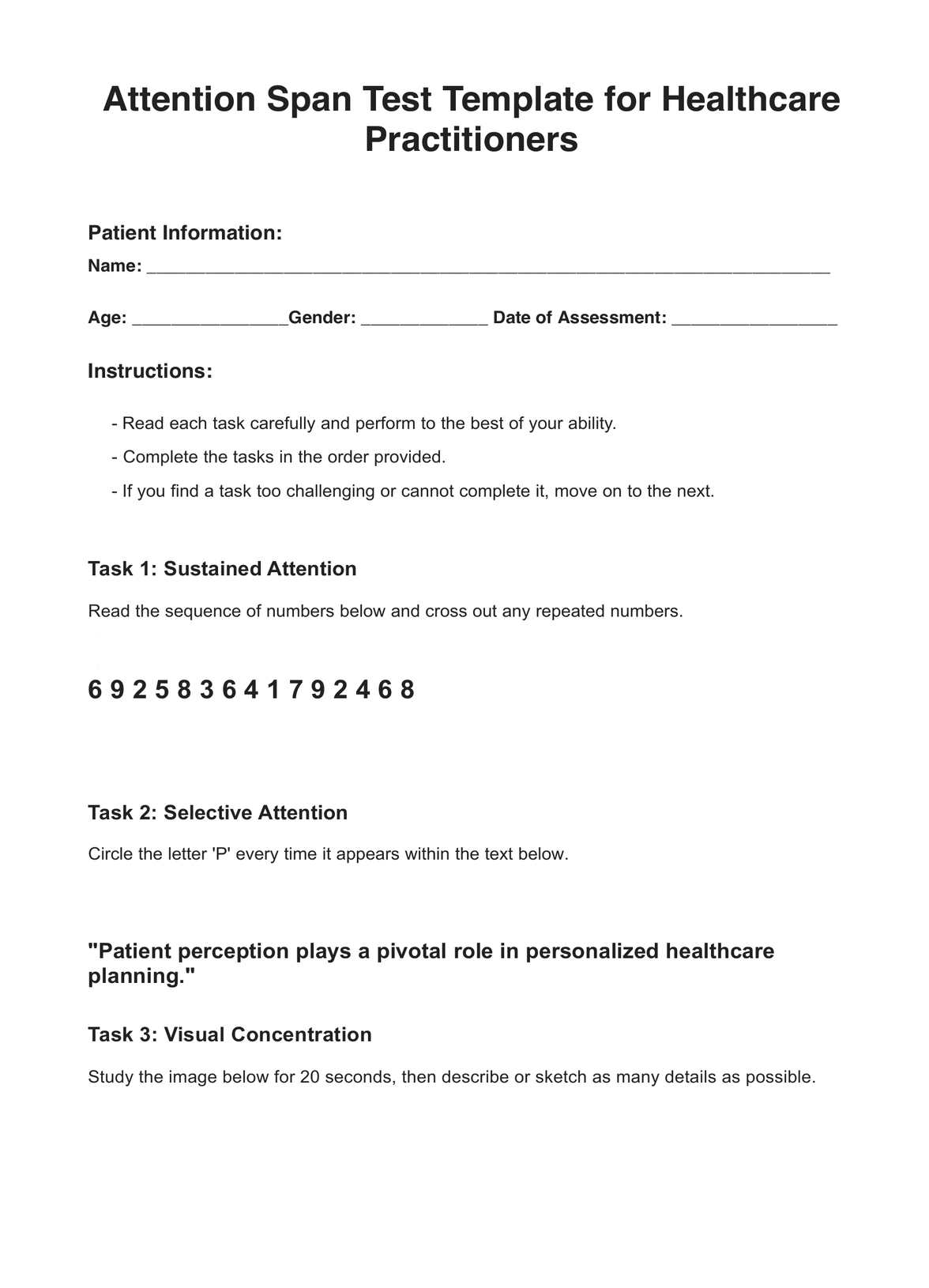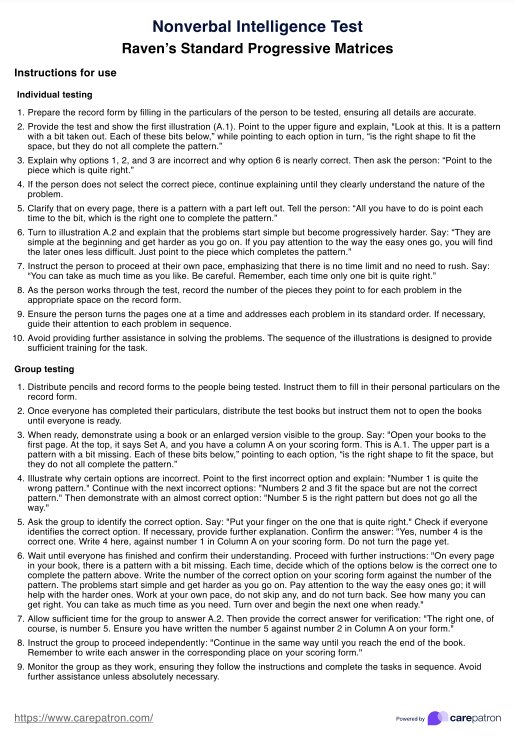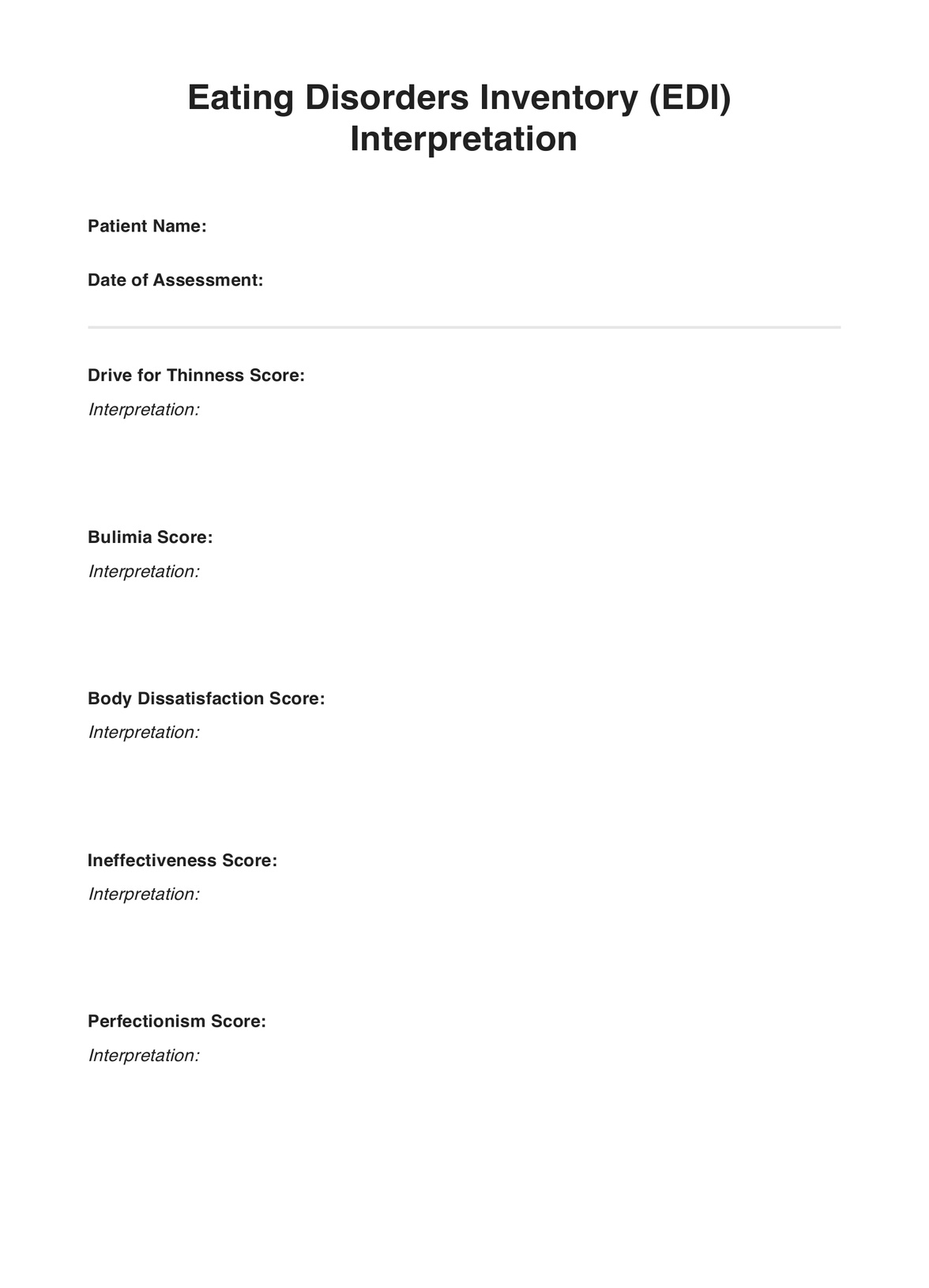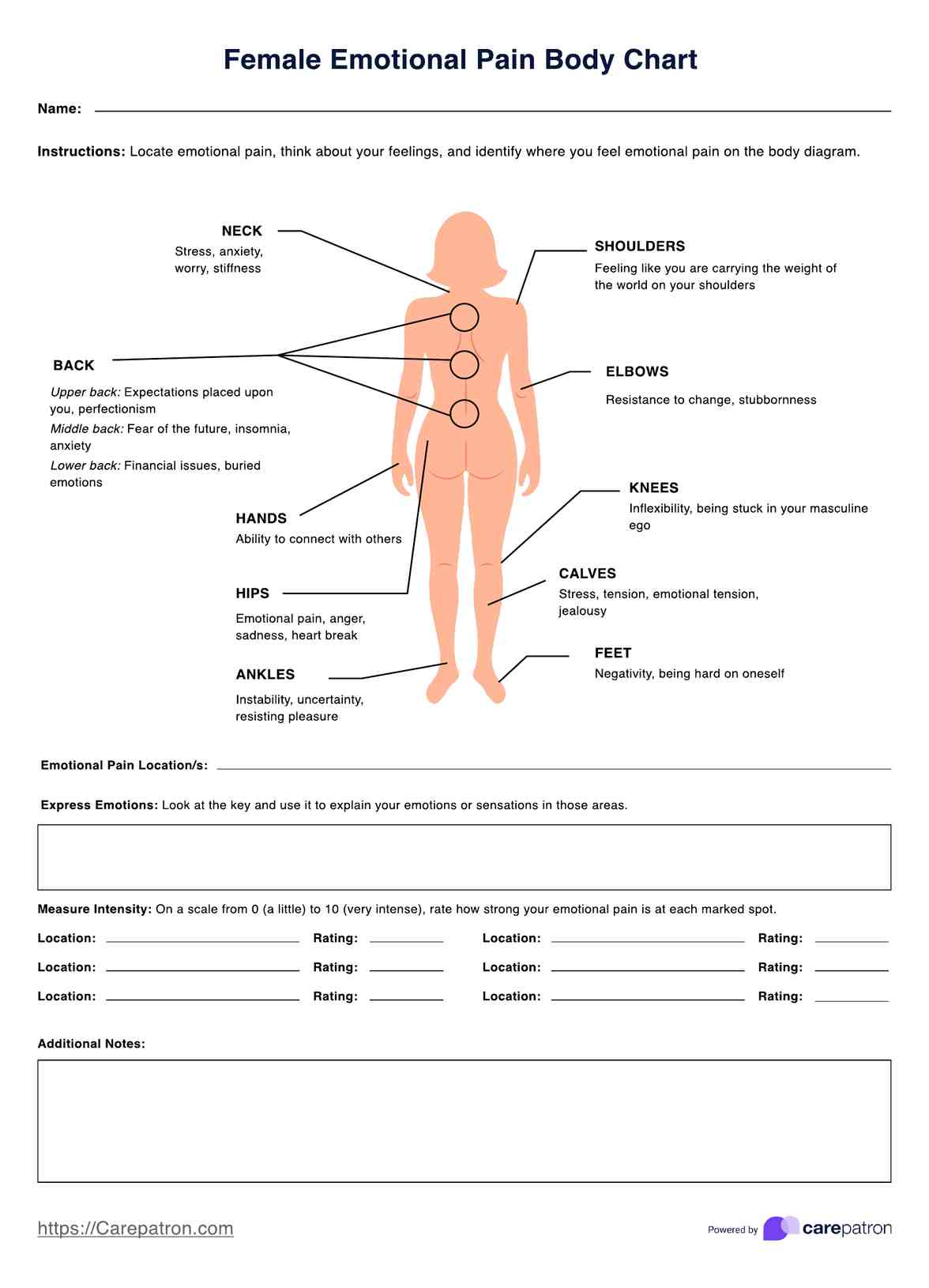Pursuing Recreational Activities for Abstinence CBT Worksheet
Boost your therapy sessions with Carepatron’s Pursuing Recreational Activities for Abstinence CBT worksheet. Engage in meaningful activities & reinforce sobriety.


What is Cognitive Behavioral Therapy?
Cognitive Behavioral Therapy (CBT) is a widely recognized psychological treatment validated as effective for addressing many issues. These include but are not limited to, depression, anxiety disorders, marital issues, eating disorders, severe mental illness, and substance abuse problems.
At its core, CBT is a form of psychotherapy that focuses on altering dysfunctional emotions, behaviors, and thoughts by challenging and changing unhelpful cognitive distortions and behaviors, improving emotional regulation, and developing personal coping strategies that target solving current problems. It posits that our thoughts, feelings, and actions are all interconnected, and negative thoughts and feelings can trap us in a vicious cycle.
Particularly in the realm of substance abuse, CBT plays a critical role. Negative thought patterns and destructive behaviors often drive substance abuse. CBT helps individuals identify these harmful patterns, understand how they lead to substance abuse, and learn to replace them with healthier thoughts and behaviors.
Integrating CBT for substance abuse into a comprehensive care plan can significantly enhance treatment outcomes. By combining CBT with other therapies and strategies, healthcare providers can offer a more holistic approach to patient care. You can explore our resources for more detailed information about how CBT can be integrated into a comprehensive care plan.
Pursuing Recreational Activities for Abstinence CBT Worksheet Template
Pursuing Recreational Activities for Abstinence CBT Worksheet Example
How to Use the Pursuing Recreational Activities for Abstinence CBT Worksheet
The Pursuing Recreational Activities for Abstinence CBT Worksheet is designed to assist individuals in maintaining abstinence from substance misuse. This worksheet encourages individuals to identify and engage in enjoyable recreational activities, serving as a natural deterrent against relapse while promoting healthier coping mechanisms.
Step 1: Identify Enjoyable Activities
In this initial phase, individuals are encouraged to brainstorm and list recreational activities they find fulfilling and enjoyable. These activities can range from sports, hobbies, arts, or social events - anything that provides pleasure and keeps them engaged. Personal enjoyment is key, as these activities will be constructive distractions from cravings or triggers.
Step 2: Plan for Engagement
Once a list of activities has been established, the next step involves planning. Individuals are guided to determine how often and when they will participate in these activities.
Creating a structured plan increases the likelihood of engaging in these activities, providing healthy outlets for stress relief and enjoyment. It's also an opportunity to incorporate these activities into their daily routine, enhancing their lifestyle's overall quality.
Step 3: Monitor Progress
The final step involves monitoring progress. Regularly reviewing and updating their progress allows individuals to assess the effectiveness of their chosen activities in maintaining abstinence. Adjustments can be made if certain activities are less fulfilling or helpful than initially thought. This continuous evaluation ensures the pursuit of recreational activities remains a dynamic and effective part of their abstinence journey.
Our printable Pursuing Recreational Activities for Abstinence CBT Worksheet is a valuable resource for those committed to maintaining abstinence. By identifying enjoyable activities, planning for engagement, and monitoring progress, individuals are better equipped to navigate their journey toward recovery.
When Would You Use this Pursuing Recreational Activities for Abstinence CBT Worksheet?
The Pursuing Recreational Activities for Abstinence CBT Worksheet is a versatile therapeutic tool most effectively used during the recovery phase of substance misuse treatment. This worksheet is a practical aid in helping individuals establish healthier coping mechanisms to replace former substance-related behaviors.
One of the critical moments to introduce this worksheet is after detoxification when an individual is grappling with how to fill their time previously occupied by substance use. It can help individuals identify fulfilling and enjoyable activities, which can act as a deterrent against relapse by providing constructive distractions from cravings or triggers.
Additionally, this worksheet is ideal for use during therapy sessions, particularly cognitive-behavioral therapy (CBT). Healthcare professionals, including therapists, counselors, and psychologists, can utilize this tool to guide their patients in recognizing positive recreational activities. By doing so, they aid their patients in creating a structured plan for engaging in these activities, thus promoting healthier lifestyle choices.
Moreover, the Pursuing Recreational Activities for Abstinence CBT Worksheet is also valuable during treatment follow-up or maintenance phases. Regularly reviewing and adjusting the activities listed on the worksheet helps to ensure that the chosen recreational activities continue to support the individual's commitment to maintaining abstinence.
The Pursuing Recreational Activities for Abstinence CBT Worksheet is a valuable tool throughout the recovery journey, helping individuals to replace harmful habits with positive, fulfilling recreational activities.
What are the Benefits of Using this Pursuing Recreational Activities for Abstinence CBT Worksheet?
The Pursuing Recreational Activities for Abstinence CBT Worksheet offers various benefits for individuals seeking to abstain from harmful behaviors. Here are some key advantages:
Benefit 1: Fostering Healthy Coping Mechanisms
One of the primary benefits of this free worksheet is that it promotes the development of healthy coping mechanisms. It assists individuals in pinpointing stress-relieving activities that can replace harmful habits, thus fostering resilience and emotional well-being.
Benefit 2: Cultivating Personal Responsibility
Another significant advantage of using this worksheet is the cultivation of personal responsibility. It encourages individuals to take charge of their recovery journey by planning and monitoring their recreational activities. This active participation in their healing process can result in a deeper commitment to abstinence.
Benefit 3: Enhancing Therapeutic Interaction
Our free Pursuing Recreational Activities for Abstinence CBT Worksheet also serves as a valuable tool for therapeutic interaction. It can guide discussions between patients and therapists, fostering a deeper understanding of their struggles and facilitating empathy, enhancing the therapeutic relationship.
While there isn't specific research dedicated to this particular worksheet, numerous studies have documented the effectiveness of Cognitive Behavioral Therapy (CBT) worksheets in general. These resources support cognitive restructuring, help manage symptoms of various psychological disorders, and assist in recovery.
Commonly asked questions
The duration can vary based on the individual's pace and depth of reflection. Generally, it can take anywhere from 30 minutes to an hour.
This worksheet can help individuals identify recreational activities they enjoy and can engage in to maintain abstinence.
It can be used by healthcare professionals, such as therapists or counselors, to guide their patients in identifying positive recreational activities that can help them maintain abstinence.

.jpg)
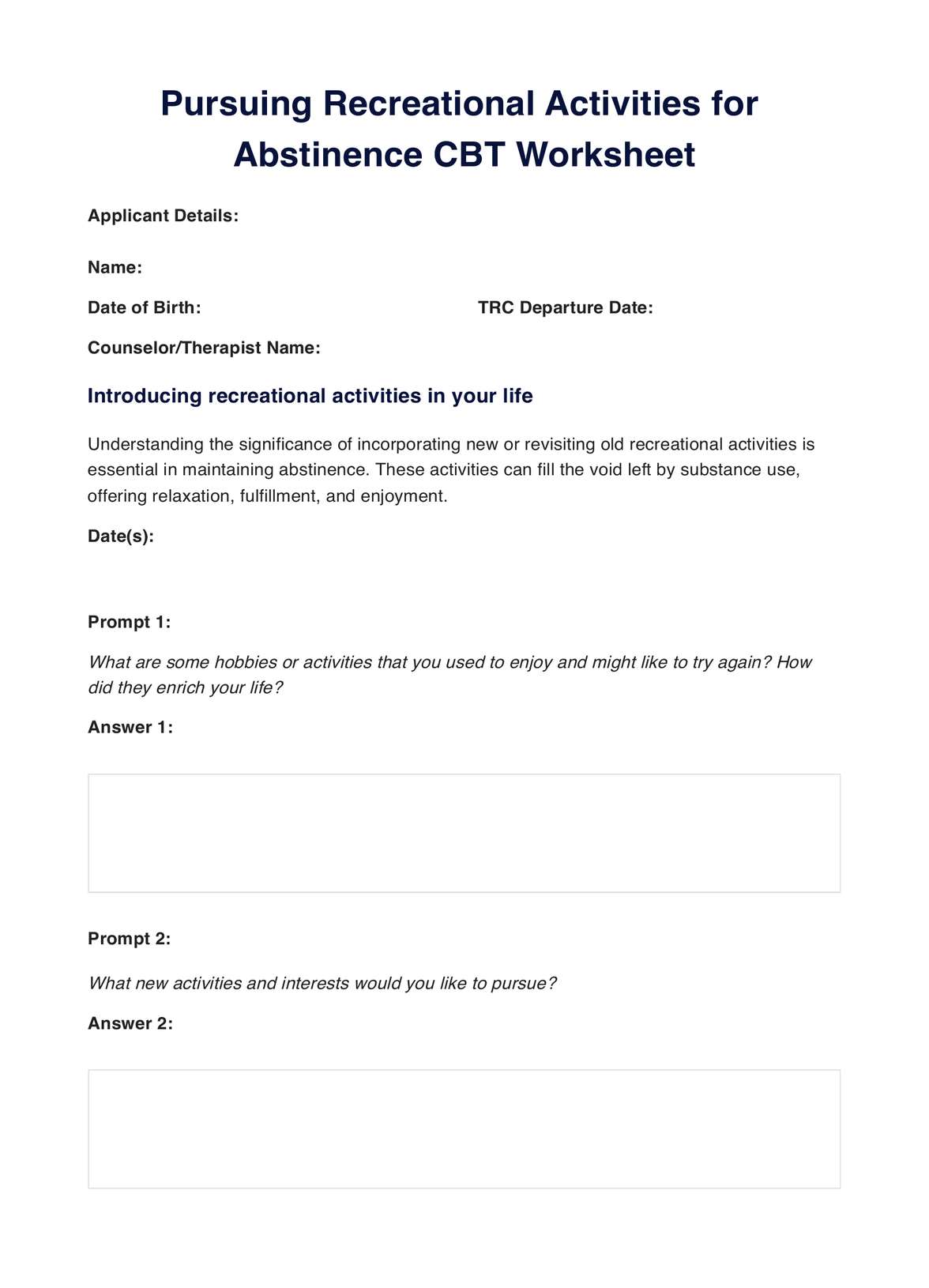
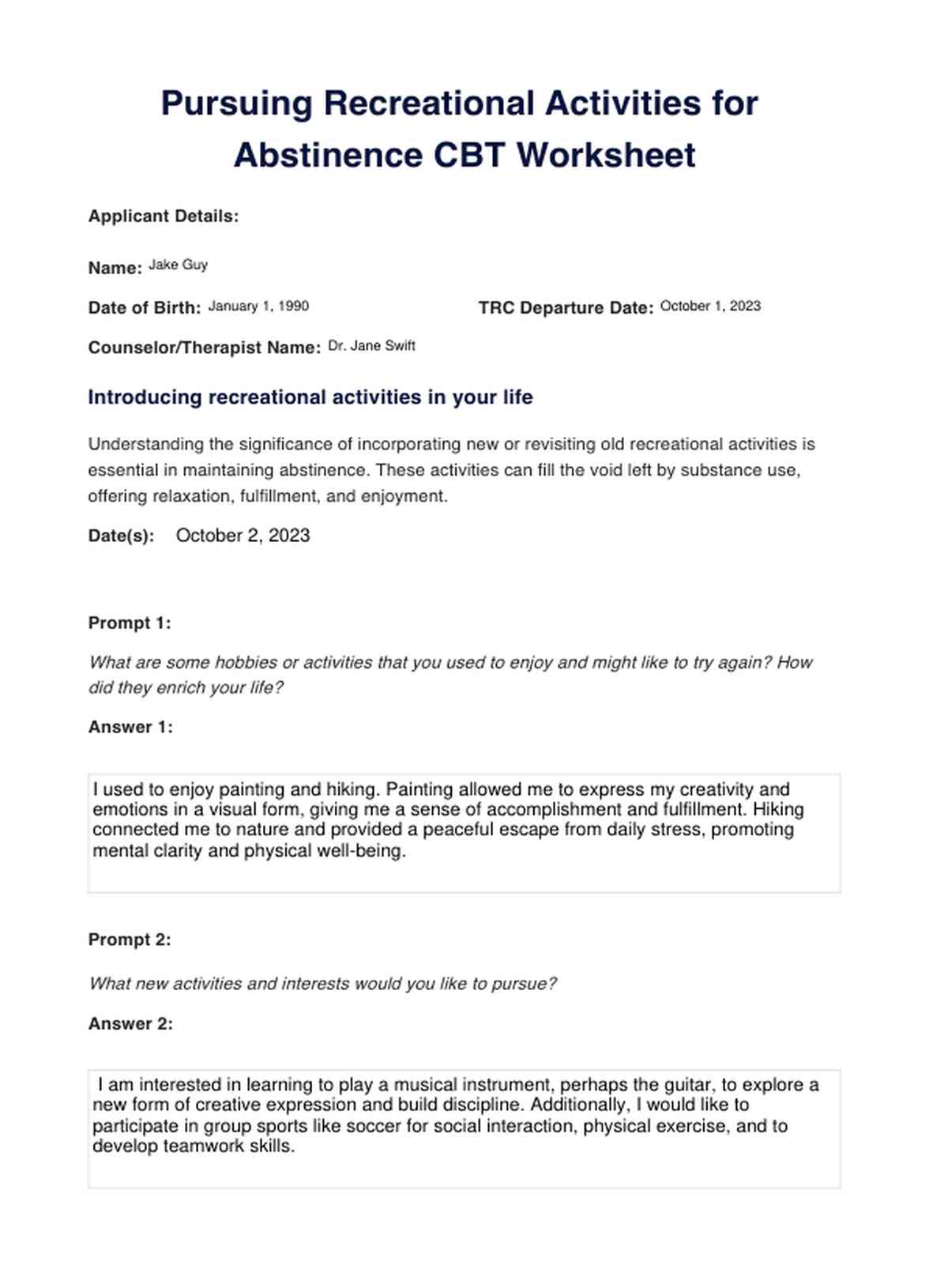















-template.jpg)






